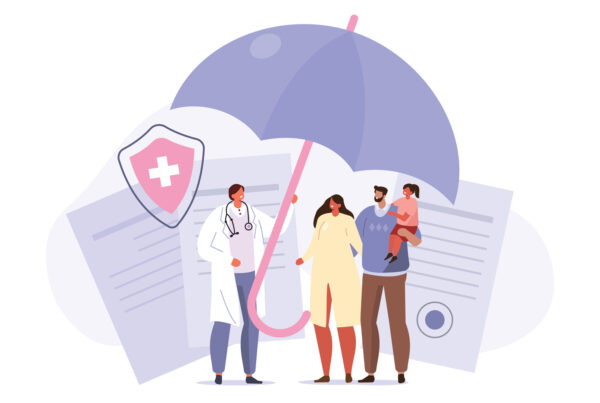What can cause someone to question the very place that they work, their professional growth, and ultimately who they are within the world of Human Services? Having been in this field for many years, I’ve found that there often is a commonality between work performance, the clientele that someone is working with, and the therapeutic professional’s own experiences.
In the Human Services world we attempt to work with clients that have been through things that many cannot grasp, but we don’t often think about how this is going to affect us and our own trauma. This is something though that we should be talking about, thinking about, and considering when deciding to take the very therapeutic roles that we are pursuing. It might not always be fun to talk about but it remains highly important.
How do we know if this is something to be concerned about? Well, there are some signs that can indicate that there is more going on than maybe meets the eye. We are going to take a look at the correlation between compassion fatigue and Adverse Childhood Experiences.
ACEs and Their Impact
First, let’s discuss the very experiences that can ultimately and unknowingly affect us within our professional domain and personal life. Adverse Childhood Experiences (or ACEs) are identified within something called an ACE scale, which according to Jasmine Brosnan (2019) “are measured by counting experiences of physical, sexual, and emotional abuse, as well as neglect, domestic violence, and others” (1). It is stated that “the original ACE study was conducted at Kaiser Permanente from 1995 to 1997 with two waves of data collection” (“About”, 2021, p.1). It has become one of a number of assessments that are provided today through doctor’s or pediatrician’s offices, therapy offices, and rehab centers.
Why do this assessment, though? Because by identifying the difference and the potential risk of trauma one may be better prepared to treat said patient. Research has found that “the higher the number of ACEs a participant had experienced, the higher the possibility that the participant would experience negative health outcomes” (Brosnan, 2019, p.3). These negative outcomes can be anything from heart failure to hepatitis; what we are going to discuss is something that be directly linked to the very work that we do: compassion fatigue.
It is stated in the thesis by Jasmine Brosnan that there is a correlation between people who have had such experiences in their past and those who go into the field of human services. According to Brosnan’s (2019) article she reports that “higher ACE scores in employees isn’t necessarily a bad thing. In fact, Human Service agencies often market for, and recruit, individuals that have a similar history as the client base they will be serving. These recruitment efforts are thought to be helpful in ensuring empathetic services being provided to those in need” (2); meaning that the more that we may have experienced, the more connection we may have.
While, this may be true it still holds the question: when do we say “Enough is enough,” and make sure that we are taking care of ourselves?
More than “Just Tired”
Compassion fatigue is one of the more significant ways that individuals within this field continue to have questionable self-care and lack of growth. While we all know what it feels to be tired, many do not often realize that there is the potential for an actual cause of this. Compassion fatigue is best defined “as secondary or vicarious trauma … the emotional and physical exhaustion that results in a reduced ability to empathize or feel compassion for others. Healthcare workers, even the most dedicated, are prone to compassion fatigue” (“Compassion”, 2020, p. 1). So to put into perspective, we are being told about trauma while having our own trauma and experiencing a response to it. (While we all know about this transference, sometimes it can happen without a person even realizing that it has occurred).
How would a high ACE score predetermine someone to have a higher likelihood of compassion fatigue? The first way to identify this is to understand how it works. When thinking of ACEs we think about the trauma that has occurred previously in one’s life. When thinking about compassion fatigue we consider the idea that this trauma has resurfaced which has caused then a response to occur. A lot of us might say we would just keep going even though we may not feel totally ourselves. What is the worst that can happen? By allowing our compassion fatigue to continue we may find ourselves in a situation of burn-out. Burn-out is an extreme case of fatigue which can often lead individuals to lack in everything from professional skills to their personal lives at home. Often people describe this as depression which often does not get better until someone decides to leave this position. I have personally discussed this with people who often report that similar aspects of their lives “lightened” when they were able to find a new position.
So what do we do if we feel as though we are starting to show some compassion fatigue? Just because we may be starting to feel this way, it does not mean that we are not going to be able to work through this. Within my understanding, the early stages of compassion fatigue often will show itself through certain signs, such as disinterest or feeling overwhelmed. This means that we have the ability to stop what is progressing and take the time to work through how we are feeling and what is truly being asked of us. Things such as taking the time to know that you need a break, or doing a self-care activity for yourself which can simply be taking a shower or cooking something that you like. Take the time to look at the caseload that you have, and how it is affecting you. This might be a good opportunity to make sure that you are enjoying the work that you are actually doing, and to make sure that this is where you want to be even with your past experiences.
All in all, the key to addressing this is knowing yourself. The idea that we are all going to respond the same is not true. Some individuals who may have an extensive ACE score may be able to be in the field lifelong without any response. Another individual may be in the field for a month or two and have a response to the clients that they are working with. Compassion fatigue is a difficult thing to address on your own. The idea is making sure that you are able to take a step back, know your limits, and understand that you are not alone. Let someone know what is going on, find a support system to talk to, and make sure that you are always keeping up on your self-care.
Emily S. has a master’s degree in psychology, and currently serves as Clinical Training Manager in KidsPeace’s Organizational Development and Training (OD&T) department.
References
About the CDC-Kaiser ACE Study |Violence Prevention|Injury Center|CDC. (2021, April 6). Centers for Disease Control and Prevention. Retrieved April 12, 2022, from https://www.cdc.gov/violenceprevention/aces/about.html
Brosnan, J. (2019). Adverse Childhood Experiences (ACEs) and Compassion Fatigue in the Human Services Field [Masters Thesis California State University]. Master of Arts.https://scholarworks.calstate.edu/downloads/ww72bh439?locale=en
Compassion Fatigue. (2020, November 10). Workforce Wellness. Retrieved April 12, 2022, from https://www.vdh.virginia.gov/workforce-wellness/wellness-topics/compassion-fatigue/






